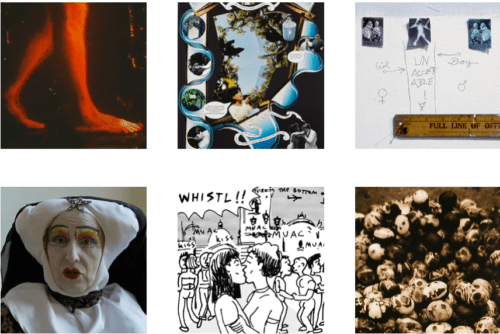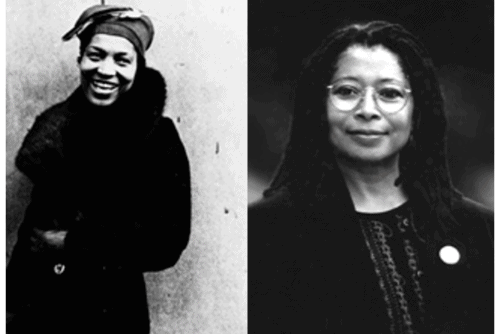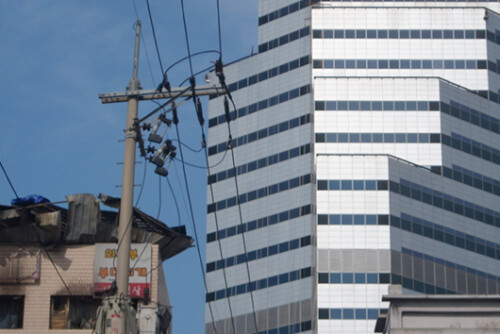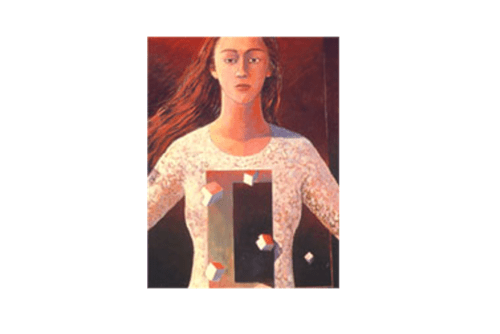Discourses of race, gender and sexuality have always served an important ideological function within imperialist projects. The current phase of American imperialism, characterized by the Global War on Terror is no exception, as evidenced by the cynical deployment of ‘women’s rights’ by the Bush regime to legitimate the bombing of Afghanistan. Given the contemporary geo-political context, the current imperialist project requires the deployment of increasingly explicit forms of Islamophobia, and ‘queer rights’ have become the latest front in this purported battle between Civilization—liberal modernity as embodied by ‘the West’—and Barbarism—as connoted by Islam. Within this neo-Orientalist discourse ‘the Muslim’ enemy is today configured as both misogynyst and homophobic, with an essentialized Islam comfortably posited as the roots of his illiberalism. This illiberalism is then presented as both the mark and the evidence of Islam’s radical alterity from Western civilization, an alterity that cannot be tolerated and must, in fact, be destroyed. Like colonial and imperial projects in the past that relied on ‘civilizing missions’ (cl)aiming to ‘save brown women from brown men’ (for a counter argument see Spivak 1999), the new imperial project thus uses the imperative to ‘rescue’ Muslim queers (as well as women, of course) as an ideological cover for racist wars abroad and xenophobia at home.
The main thrust of this essay is to show how misleading the contemporary mainstream Western discourse on ‘Islam’ and gender/sexuality is, and the degree to which it is premised on an essentialized and monolithic ‘Islam’ emptied of history, diversity, complexity, and dissent. I begin by highlighting some of the constitutive elements of this discourse and the central role played by certain key neo-conservative Muslim intellectuals in ventriloquising a racist Islamophobia. I then juxtapose this discourse and its claims with a close reading of two cases involving women and sexual minorities from Pakistan in order to show how a framework which begins with the prior assumption that something called ‘Islam’ determines the status of women and sexual minorities in ‘the Muslim world’ is simply not intellectually useful and is in fact politically dangerous.
Everybody Loves a Good Native (Informant)
Of course, this new ideology of Empire requires its organic intellectuals or ‘native informants’ and, as always, collaborators are readily available. Enter Irshad Manji, Ayaan Hirsi Ali, and Salman Rushdie, along with a slew of lesser-known ‘experts’—writers, artists, etc. Rushdie was one of the earliest supporters of the Global War on Terror, claiming in a Washington Post op-ed that what lay behind the September attacks was not international politics, but a mindset that abhorred Western freedoms, in particular the freedom for women to wear miniskirts (and, presumably, the freedom for men to enjoy women wearing miniskirts 1). 2 Since then, he continues to be one of the strongest voices within the clash of civilizations framework, undeterred by the fall in popular support for the war in Iraq.
Irshad Manji shot to instant stardom in 2003 with the publication of her book The Trouble with Islam. 3 A “narrow polemic,” filled with inconsistencies, selective citations and brash generalizations, nevertheless—or rather, therefore—continues to be popular. 4 Manji also carefully cultivated a persona to go along with the book—that of a young, smart, and brash queer Muslim woman. The cover of the book features a head shot of Manji in partial profile looking plaintively up (presumably towards God/Allah); the title of the book is superimposed on a band which cuts across the cover at a point where it strategically covers Manji’s mouth. The symbolism is anything but subtle, but then subtlety is not a hallmark of this new Orientalism.
This posturing has paid off—The New York Times declared her “Osama bin Laden’s worst nightmare.” 5 Manji is the recipient of the first-ever ‘Chutzpah’ award bestowed on her by Oprah. And what is it that Manji has the ‘chutzpah’ to do? Why, to confront “her fellow Muslims on their blatant anti-Semitism, for the misleading clarion call against American imperialism, for silence in the face of terrorism, for the abuse of Muslim women in conservative Islamic communities.” 6 The list is revealing; it is in essence a reflection of the various aspects of neocon discourse: Zionism (characterized by unqualified support of Israel, the coding of Palestinians as ‘terrorists,’ and the vilification of Edward Said as someone who stifled reasoned debate on the Israel-Palestine issue 7), as well as unqualified support for U.S. imperialism based on the humanitarian imperative to ‘save’ Muslim women from the violence of their religion and their men. The urge to cite Gayatri Spivak has never been greater.
Manji’s endorsement by such icons as Salman Rushdie and Thomas Friedman underline her status as an organic intellectual of empire. In no less than The New York Times, Manji proclaims that “[w]hile every religion has its fundamentalists … only in Islam is literalism in the mainstream, a recipe for generating hatreds that can spawn suicide bombers.” 8 One of her most valuable contributions to neoconservative politics is her critique of liberal multiculturalism that, according to her, prevents liberals from exercising their moral imperative to civilize the barbarians. Belying the claim made in the subtitle of her book (“A Muslim’s Call for Reform in Her Faith”), which appears to intimate that her audience are ‘her fellow-Muslims,’ she asks ‘Westerners’ (i.e., White non-Muslims): “Will you succumb to the intimidation of being called ‘racists,’ or will you finally challenge us Muslims to take responsibility for our role in what ails Islam?” 9 This implies, of course, that the Muslims are a monolithic community, devoid of any internal complexity and in fact incapable of effecting change from within; in order to make this claim, she (like Hirsi Ali) needs to gloss over the ubiquitous dissent in ‘Muslim’ countries across time and space, and render invisible the thousands of (Muslim) activists fighting for progressive values in these places.
Western academia has rewarded Manji handsomely for her ‘courageous’ stand against her essentially illiberal religion and community. 10 She was invited to head the “Moral Courage Project” at New York University which “aims to develop leaders who will challenge political correctness, intellectual conformity and self-censorship.” This, despite the fact that critics have pointed out the deep and consistent inaccuracies—conceptual, historical, cultural, geographic—that characterize Manji’s discourse.
- In her superb book The Politics of the Veil, Joan Scott points to the way in which the imperative of the heterosexual male gaze underlies the French anxiety over the veil. Scott quotes a French psychoanalyst’s (a woman) explanation that, “the real problem posed by the veil is that is covers over … a sexual dimension”. As Scott points out, “It was precisely the covering over of women’s sexuality that so troubled her: the veil was a denial, she said, of women as ‘objects of desire’ … the veil interfered with what she took to be a natural psychological process: the visual appreciation of women’s bodies by men brought women’s femininity into being … feminine identity depended on male desire; male desire depended on visual stimulation.” See Joan Scott, The Politics of the Veil (Princeton, NJ: Princeton University Press, 2007): 157-8[↑]
- Salman Rushdie, “Fighting the Forces of Invisibility,” The Washington Post, 2 October 2001.[↑]
- Irshad Manji, The Trouble with Islam (New York: St. Martin’s Press, 2004).[↑]
- Leila Lalami, “The Missionary Position,” The Nation, 1 June 2006.[↑]
- Clifford Krauss, “An Unlikely Promoter of an Islamic Reformation,” The New York Times, 4 October 2003.[↑]
- “She’s Got Chutzpah,” O, The Oprah Magazine, May 2004.[↑]
- Due to constraints of space, it is not possible to do justice to the place of Zionist intellectuals and the state of Israel and the role of queer activism in the West within this latest imperialist project and its accompanying ideological discourse of Islamophobia. Briefly, queer Zionist intellectuals/activists (such as Andrew Sullivan), and the state of Israel, pitch the latter as an island of queer-positivity (read: liberalism) in a sea of Arab/Muslim/Palestinian homophobia. This position is not going unchallenged, however—anti-Zionist and anti-imperialist queer groups and individuals in Israel/Palestine and the West have launched a concerted counter-attack. For a quick introduction to the issues, see: Jasbir Puar, “Israel’s Gay Propaganda War,” The Guardian, 1 July 2010.[↑]
- Krauss.[↑]
- See Irshad Manji’s blog.[↑]
- The role of the Western—and, in particular, U.S.—academy in the current imperialist project deserves separate in-depth attention.[↑]



